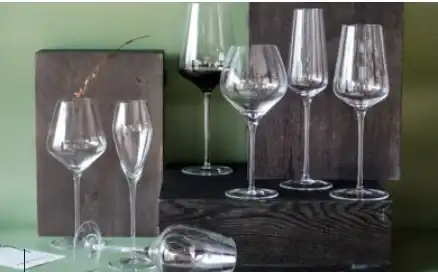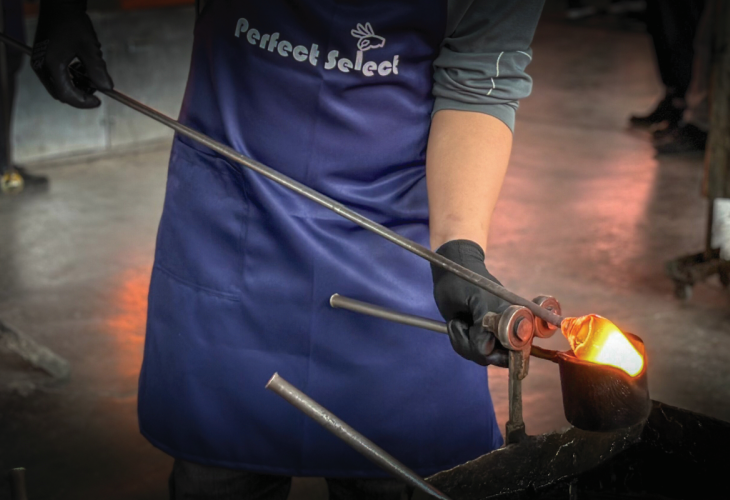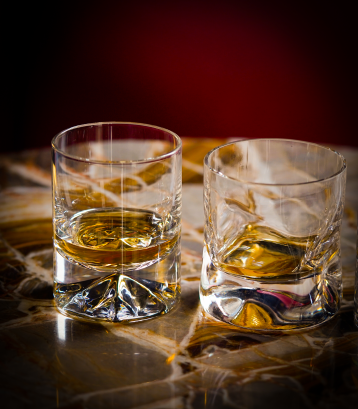How a Glass of Wine Before Bed Affects Sleep Quality and Timing
Having a glass of wine before bed might seem like a cozy way to unwind. It can make you feel sleepy at first. But it might mess with how well you sleep. This guide will explain how wine changes your sleep and when to drink it. We’ll look at smart choices and tips, including using Perfect Select glassware, to keep your rest good. Let’s find out what happens when wine meets bedtime!
Can Drinking Wine Before Bed Disrupt Your Sleep Cycle?
Why Alcohol Alters the Natural Sleep Architecture and Reduces Deep Restorative Phases
Drinking wine before bed might feel relaxing, but it’s not good for sleep structure. Alcohol calms your nervous system at first. It makes you drowsy. Yet, it cuts down on deep sleep, called slow-wave sleep. This sleep helps your body heal and boosts your immune system. The change leads to lighter, broken rest as the night goes on.
Your body breaks down alcohol and raises adenosine levels. This speeds up falling asleep. But it fades fast. Then, you wake up a lot later. As alcohol leaves your system, its calming effect goes away. This causes a bounce-back alertness. It lowers how well you sleep. You might doze off quick after wine, but your rest quality drops.
The Impact of Evening Wine on REM Sleep and Overnight Brain Activity
REM sleep, or Rapid Eye Movement sleep, is key for memory, feelings, and thinking. Wine reduces REM sleep in the first half of the night. Later, it brings a big REM bounce. This can mean wild dreams or nightmares. This uneven pattern messes with brain work at night. It can leave you foggy or less alert in the morning.
A nightly wine glass also throws off brain chemicals like GABA and glutamate. This overexcites you in the second half of the night. Over time, it might cause ongoing sleeplessness or fuzzy thinking during the day.
How Many Hours Should You Wait After Drinking Wine Before Going to Bed?
The Optimal Time Gap Between Your Last Sip and Sleep for Better Rest
To keep wine from hurting your sleep, wait long enough after your last drink. Experts say stop drinking wine at least three hours before bed. This gives your liver time to process most alcohol in your blood. It lessens the trouble it causes to sleep stages.
Alcohol breaks down at about one standard drink per hour. So, if you have two wine glasses with dinner at 7 p.m., plan to sleep no earlier than 10 p.m. This helps you rest better.
How Metabolism Rate and Body Composition Influence the Ideal Waiting Period
How fast you process alcohol depends on personal traits. Things like body weight, gender, age, water levels, and liver health matter. People with more muscle often handle alcohol better than those with more fat. This is because muscle holds more water.
Women usually process alcohol slower. They have less alcohol dehydrogenase in their stomach and different body shapes. Older folks also take longer due to weaker livers. Some might need more than three hours for their blood alcohol to drop near zero before sleep.
Does a Nightly Glass of Wine Affect Sleep Timing Over the Long Term?
How Regular Evening Alcohol Consumption Can Shift Your Circadian Rhythm
One glass now and then won’t ruin you, but drinking wine every night before bed can change your body clock. This clock runs your 24-hour cycle. Alcohol blocks melatonin from the pineal gland when you drink close to bedtime.
This block delays sleep signals that peak at night. Over weeks or months, it might push your sleep time later or earlier. Someone who drinks wine at 9 p.m. every night might stay up later because of shifted hormones.
The Risk of Delayed Sleep Phase Syndrome When Wine Becomes a Habitual Nightcap
Delayed Sleep Phase Syndrome (DSPS) means trouble falling asleep until late and waking up early. When wine turns into a regular night drink, it raises DSPS risk. It does this by messing up REM sleep and stopping melatonin. This builds late-night energy patterns.
Drinking often also dulls GABA receptors over time. You might need more wine for the same calm effect. This adds to clock misalignment and can lead to long-term tiredness or sleep issues.
What Role Does Wine Type, Portion Size, and Alcohol Content Play in Sleep Quality?
Comparing Red vs. White: Tannins, Sugar Levels, and Their Effects on Nighttime Wakefulness
The wine type affects how it disturbs your sleep. Red wines have more tannins from grape skins. These can trigger histamine in some people. High histamine might cause headaches or stuffy noses that mess with breathing at night.
Red wines also have more congeners, leftovers from fermentation. These link to worse hangovers and next-day tiredness, even with small amounts. Sugar matters too. Sweet wines like Rieslings or dessert types can spike blood sugar. Then, it drops low during sleep. This triggers cortisol and wakes you up.

How Serving Size and Alcohol Percentage Influence Sedation Versus Fragmentation
How much wine you drink ties to how much ethanol gets in your blood. A standard 5-ounce serving has about 12% alcohol by volume (ABV). But many wines today hit 14–15% ABV. This makes you sleepy at first but breaks sleep later as your body works through it.
Bigger servings make this worse. They keep blood alcohol high into the night. This cuts into REM sleep, which should help you recover. Instead, your body gets active again as ethanol drops.
Could a High-Quality Glass Improve the Ritual Without Compromising Health?
Why Material Matters: The Difference Between Soda-Lime and Lead-Free Crystal for Daily Use
Cutting back on wine is the main way to protect sleep. But upgrading your glassware can make the habit fun without harm if you’re careful. Detail: Shot Glasses shows how material choice shapes your experience, even if it’s about shots, not wine.
Soda-lime glass is common but lacks sparkle or sound compared to lead-free crystal. This safer option gives elegance without the risks of old leaded crystal over time. Pretty glassware might help you sip mindfully and stick to less.
Are There Better Alternatives to Wind Down Without Alcohol?
Non-Alcoholic Rituals That Mimic the Relaxing Effect of Wine Without Disrupting Sleep
Many folks use wine to relax before bed, but other options give the same feel without hurting sleep. Mocktails with adaptogens like ashwagandha or reishi mushroom calm you down. They don’t mess with brain chemicals. Warm milk with nutmeg or tart cherry juice, rich in melatonin helpers, also boosts sleep time.
Pairing Herbal Teas or Breathing Techniques With Elegant Drinkware as a Substitute
Chamomile tea soothes with apigenin, a mild calmer that works like some medicines but isn’t addictive. Other teas like lemon balm or valerian root ease stress by tweaking cortisol. Using nice stemware or tumblers copies the wine ritual’s look and feel. Box breathing—inhaling and exhaling for equal counts—relaxes you for sleep without drugs.
FAQ
Q1: Is one glass of wine really enough to disrupt my entire night's rest?
A: Yes, even a little wine changes REM sleep and causes wake-ups when blood alcohol drops mid-night.
Q2: What’s better: red or white wine if I’m going to drink occasionally at night?
A: White wines have fewer tannins and congeners than reds. They might bother you less short-term but still affect melatonin if drunk too late.
Q3: Can I train my body over time so that wine doesn’t affect my sleep anymore?
A: You might get used to falling asleep faster, but REM issues stay.
Other Blog










